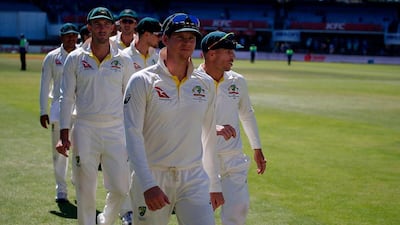Where do we draw the line between seeking to gain a competitive advantage and cheating?
On a recent Saturday morning, two community football teams met in a winner-takes-all cup final. Let’s call the two sides A and B.
The two teams had come through a league and play-off system to decide which one would be crowned champions. When they had met a few weeks before, Team A had comfortably beaten Team B, but this was a cup final and, as the old sporting cliche goes, anything could happen.
As the teams lined up for kick off in their final, several people noticed that Team B had a player on their team that no one had seen before. Questions were asked about whether he was properly registered and whether he was young enough to meet the league’s age criteria. Team B’s administration staff said that he had been properly registered to play in the match and his identification documents were all in order. He was not, however, a UAE resident.
The game kicked off, Team B won 2-1, the new player scored twice and, as I understand it, has now left the country. The winning team observed the letter of the law, but it left me wondering whether they followed the spirit.
In answering that question I have to declare an interest.
A member of my family played in the match and finished on the losing side. Knowing that, you may accuse me of sour grapes – and you may be right. I should also tell you that I wasn’t able to attend the game, but I have spoken to several spectators who did and felt aggrieved by what they saw. You may accuse me of not being able to properly digest what was an unexpected defeat. You may be right about that as well, although there is a bigger problem in all of this.
Unfortunately, sport too often exists in a space where pushing the limits of what is legal is celebrated. In football, a player who commits a “professional foul” is considered to have “taken one for the team” or been “tactically cute” by conceding a foul to prevent a goal-scoring opportunity.
The much decorated rugby union international Richie McCaw was often talked about and, indeed, championed as someone who knew what he could get away with on the field. He led the New Zealand All Blacks to unparalleled greatness during his tenure as captain of the side.
In the wrong hands, of course, gaming the system can easily become a staging post on the road towards outright cheating. This is the pathway that leads to the scandal that was dubbed “sandpapergate” earlier this year – when three Australian cricketers were banned for tampering with the ball as they sought to gain a competitive advantage for their team.
It occurs, too, in athletics. The British long-distance runner Jo Pavey has spoken eloquently about lining up at the start of important races and having strong suspicions that her opponents were doping.
In an interview with The Telegraph in 2015, she said: "I've had a brilliant career and have had some wonderful experiences but, in many ways, it has been ruined by cheats."
That impact has been felt by the athlete, not just in terms of race results that didn’t go her way and medals she was denied by cheats, but also in the toxins of self-doubt and failure that tend to flood any of us when results aren’t what we aspire to.
This week, the UAE Government announced that 2019 will be the Year of Tolerance. As well as the key ambitions to promote tolerance among communities, in schools and in legislation, there is the unexpected benefit of how greater focus on the idea of tolerance should encourage reflection and an appropriate level of introspection among each one of us. As Sheikh Mohammed bin Rashid, Vice President and Ruler of Dubai, has said, tolerance is about moderation and respect. "Tolerance," he said, "is the basis for building societies."
Let’s also hope that all of us can heed those words and learn those lessons in our own lives. The cornerstones of a tolerant world are an adherence to fair and just principles. Too often in professional sport, cheating becomes part of the game. I hope that idea never gains too much traction in amateur sport.
Nick March is an assistant editor-in-chief at The National


